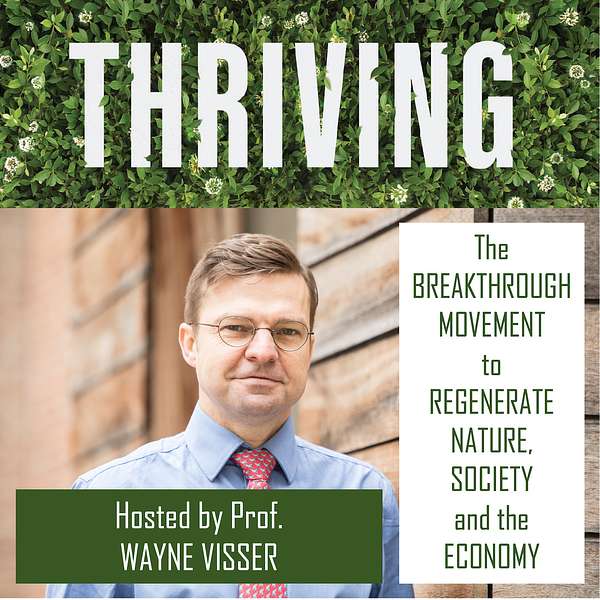
Thriving: The Breakthrough Movement
Join me, Prof Wayne Visser, for inspiring conversations with leaders in the breakthrough movement to regenerate nature, society and the economy. Thriving is about going beyond sustainability to a net positive agenda of innovation and regeneration. Each episode is a dialogue with thought leaders and pioneering practitioners, capturing their perspective on the six great transitions to thriving: how to go from degradation to restoration of ecosystems, from depletion to renewal of resources, from disparity to responsibility in communities and workplaces, from disease to revitalisation of health, from disconnection to rewiring through technology, and from disruption to resilience in infrastructure and institutions. We also explore what kind of leadership are needed to create a thriving future, and how organisations can take action to integrate thriving into their strategies, products and services. This is not about false hope or blind optimism, but we actively focus on innovative solutions and positive tipping points for change. The podcast builds on the foundations of my bestselling book "Thriving: The Breakthrough Movement to Regenerate Nature, Society and the Economy." I look forward to having you join the movement for thriving and welcome your suggestions for who I should feature as invited guests on the podcast. Credits: Host: Wayne Visser. Podcast music: Amil Raja
Thriving: The Breakthrough Movement
43. The Purpose of Capital and the Nature of Value, with Jed Emerson
•
Wayne Visser
My guest this week is Jed Emerson, Chief Impact Officer, AlTi Tiedemann Global and author of The Purpose of Capital. He discusses how:
- Impact investing, social return on investment, venture philanthropy, and blended value are related, reinforcing concepts and practices
- ESG investing is not a new idea or practice, going back at least to the Mennonite shareholder activism in relation to the Dutch East India Company
- The ethical investment movement has evolved from screened socially responsible investments and best in class approaches to ESG integration and impact investing
- ESG investment has reached a critical mass, but the business risk-based approach (single materiality) resulted in perceptions of greenwashing
- Stakeholder capitalism represents a shift in societal norms and expectations of business, but face significant resistance from incumbent vested interests
Key links
Jed Emerson (LinkedIn)
Blended Value (website)
AlTi Tiedemann Global (website)
The Purpose of Capital (book)
Mutualism (book)
Thriving (book)
I Like to Move It (poem)
Wayne Visser (website)
Wayne Visser (LinkedIn)